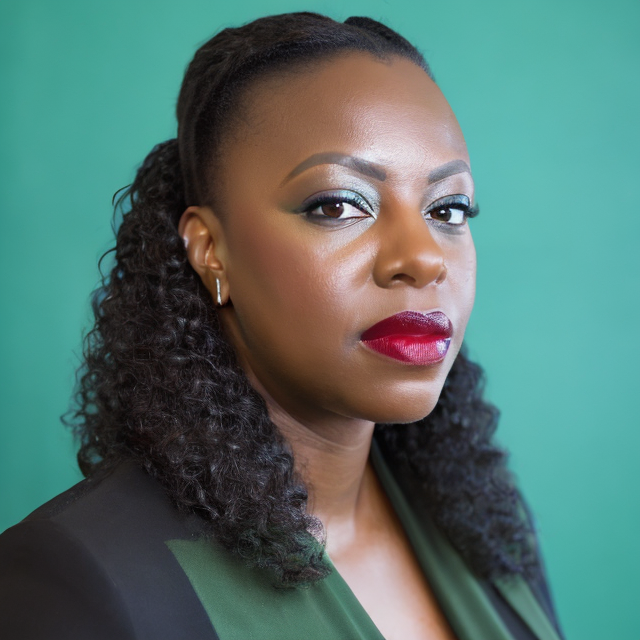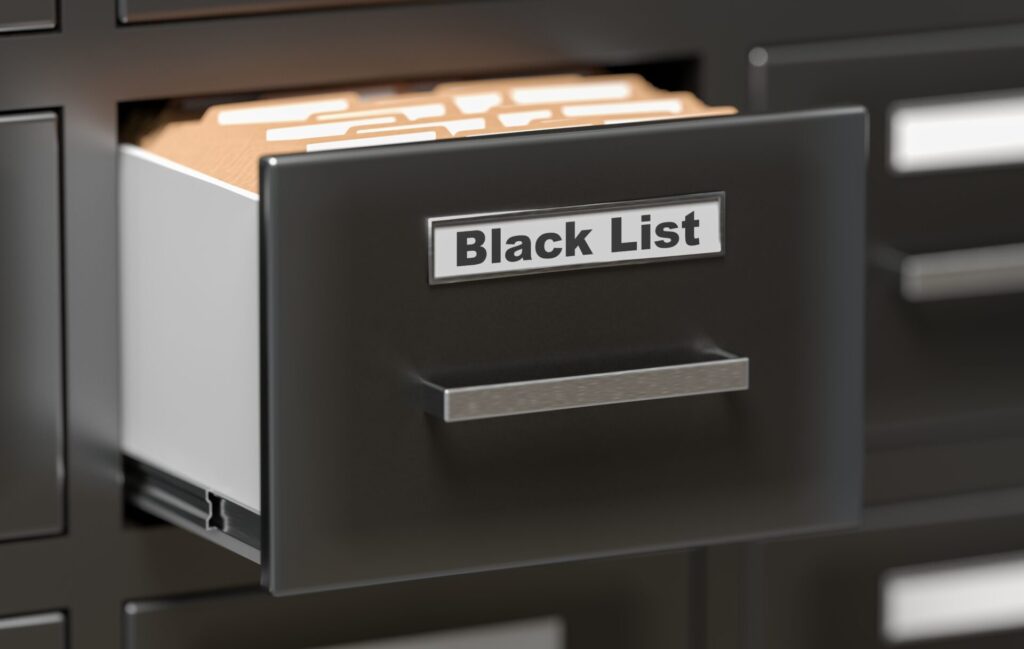Black women face many obstacles in the workplace – from racism and discrimination to stolen wages. These experiences lead to feeling invisible, anxiety, depression and PTSD. What if they had been warned before entering a toxic workplace? Maybe they would have chosen another path. Ansa Edim had a few terrible experiences in organizations where she felt unsafe, prompting her to leave the corporate world and eventually starting Blacklist, a website dedicated to warning others about toxic workplaces. While it is open to all marginalized and protected groups, as a Black woman, Ansa hopes her site will give a voice to the voiceless. We caught up with her to learn more about her career journey and her mission to make workplaces safe and inclusive for everyone.
NOTABLE: What made you decide enough is enough? And we need to have a blacklist about the mistreatment of marginalized people in the workplace?
ANSA: I’ve been in corporate America, in the tech space, for about ten years, going on maybe twelve years. As a Black woman, I started from the bottom and worked my way up. I consistently felt like even if I was hired for a job, my white bosses always made me feel like I was lucky to be there and that I was underqualified. I would keep saying to myself, “I don’t understand. You hired me to do this job, so clearly, I’m qualified enough to be here.”
I had a really bad experience at an organization, Change.org, where I was just surrounded by inept white people. And I just kept saying, “How did they get to this role? This is not fair. It’s just not fair that they, through their connections and resources, have been able to accomplish so much, and I’m begging them for scraps.” So, I left that company after three years. The lawsuit bought me this house.
I told people about Change.org and my experience there being kind of surrounded by people who didn’t really know what they were doing and weren’t handling HR situations professionally. They were letting people manage who were just known bad managers, but they were white people. They were friends. They were just letting people progress and progress, and I was begging for scraps. People were like, “Wait, change is like that? Isn’t that a progressive company?” And I was screaming, “No, it’s actually decidedly not a progressive company!” And, I wished I had a mechanism to warn people, to say, “All these companies you think are going to be these progressive organizations where you are safe are not safe.”

NOTABLE: What do you hope to accomplish? I mean, is the mission that Black women are warned or is the mission that these companies will see themselves on here and change?
ANSA: The mission is that companies will see themselves on Blacklist and that they will be moved to change. I want it to be restorative justice so that people know that speaking up actually did make a difference. So, there are certain criteria that companies can meet to be on the safe jobs list because there are three pillars to Blacklist. There’s the list where there are warnings and experiences no company can ever get off the list because those experiences will always have happened. What they can do is meet certain criteria to become a safe job, and that can be proving that they are an equitable workplace. And then kind of the third pillar is the resources that I want to provide people. I did not know that I had suffered a constructive dismissal until an attorney told me, and I didn’t know how common it was. Companies bank on us being ignorant, and they bank on us being too afraid to act.
And if we can come together as all underrepresented communities, as Black women, as queer people, as people of different ethnicities and abilities, then I think we will be unstoppable, and companies are going to have to step up to the plate as younger generations are taking up more of the workforce and they’re not playing around.
NOTABLE: Do you really think these companies care?
ANSA:Well, the people who did that to me at Change.org made that man the head of HR after I left. It was a slap in the face. And to your point, I don’t think that the people who work at these companies genuinely care to make safe spaces. I think we need to hit them where it hurts. We need to hit their pockets, and we need to hit their recruitment abilities. So as younger studies show that younger generations millennials, Gen Z – I’m a millennial – and Gen Z especially, they’re not working for work’s sake. They will quit a job. They would rather be unemployed or underemployed than work at an organization that doesn’t match their values. So, companies are losing their workforce to gigs to underemployment. As boomers are dying off. Millennials are going to be 75% of the workforce in 2025.
Companies are going to hurt. They’re really going to hurt. And I’m trying to get a jump on that by saying, ‘Look how much revenue you’re going to lose. Look how much churn you’re going to have. Look at the turnover rate. Look at the attrition. Look at all of these numbers that are going to suffer if you don’t address this.’ So, I want to harm their brands enough that they say, ‘okay, even if we don’t mean it, we have to do something’.
NOTABLE: Is it effective? The people at the companies carrying out the abuse aren’t called out, so they stay with the company or go elsewhere and continue to abuse others.
ANSA:That’s a really good point. And I tried to do that on a Glassdoor review, which is what kind of started to prompt me to build Blacklist. Glassdoor is for the company, and they are trying to legally protect these companies and themselves. And they got to the point where if you look like you’re what they would call bullying, naming specific names, if it looks like you might be identifying someone, they’ll take it down. Blacklist, based on the legalese that I’ve been able to parse, based on my legal recommendations, I don’t have to do that. You can name names and protect yourself. If you’re telling the truth, let that person come and try and fight you over it.
But I want people to feel free to write the truth on other review sites or sites that are somewhat similar. There isn’t anything like Blacklist right now, but on similar sites, on company review sites, I think that people are kind of prompted to be polite and broad strokes, and they can’t really get to the root of “this specific thing happened to me under these people’s watch, and they haven’t changed.” That’s what I want Blacklist to be. I want it to be a space for stories, not just reviews.
